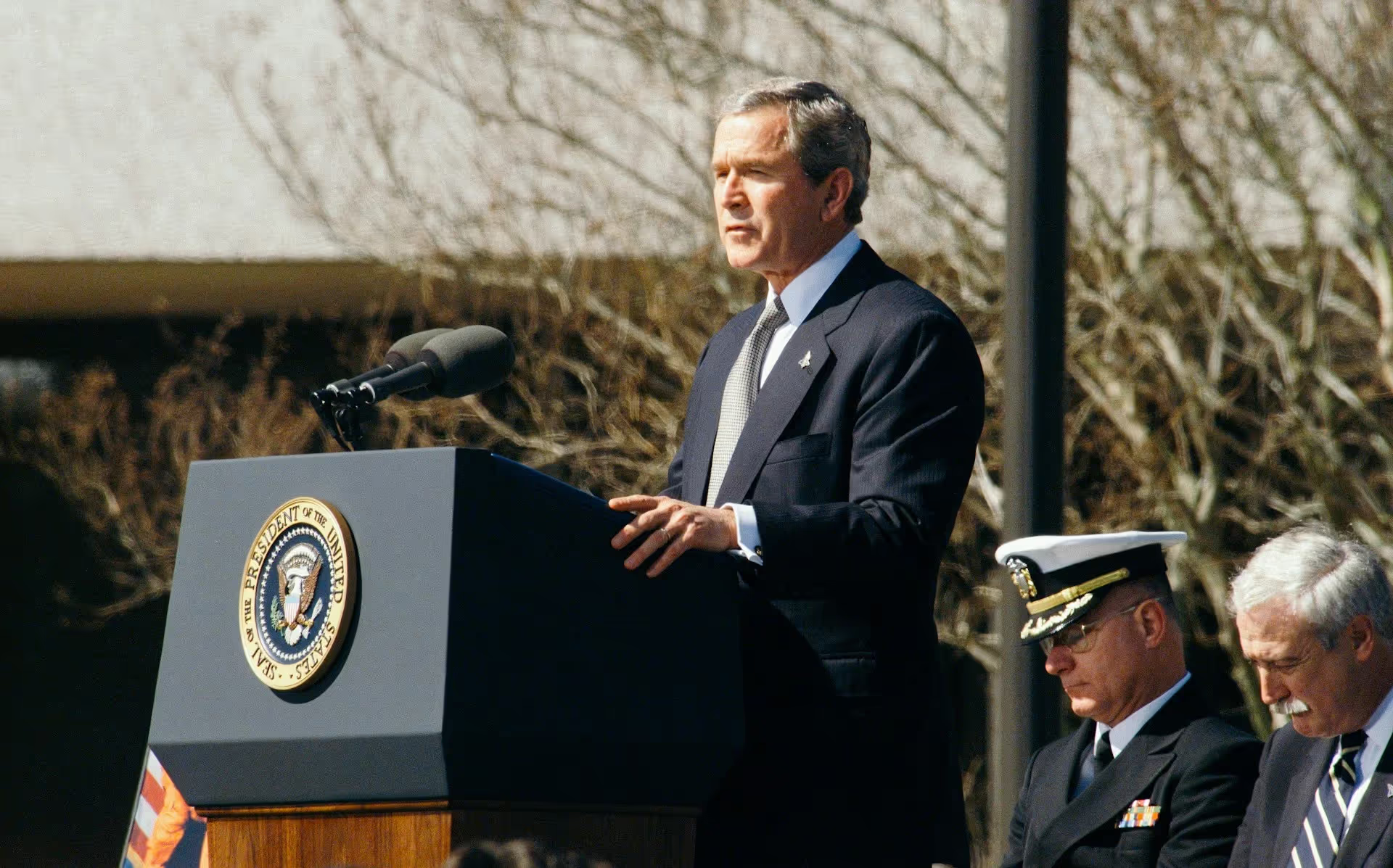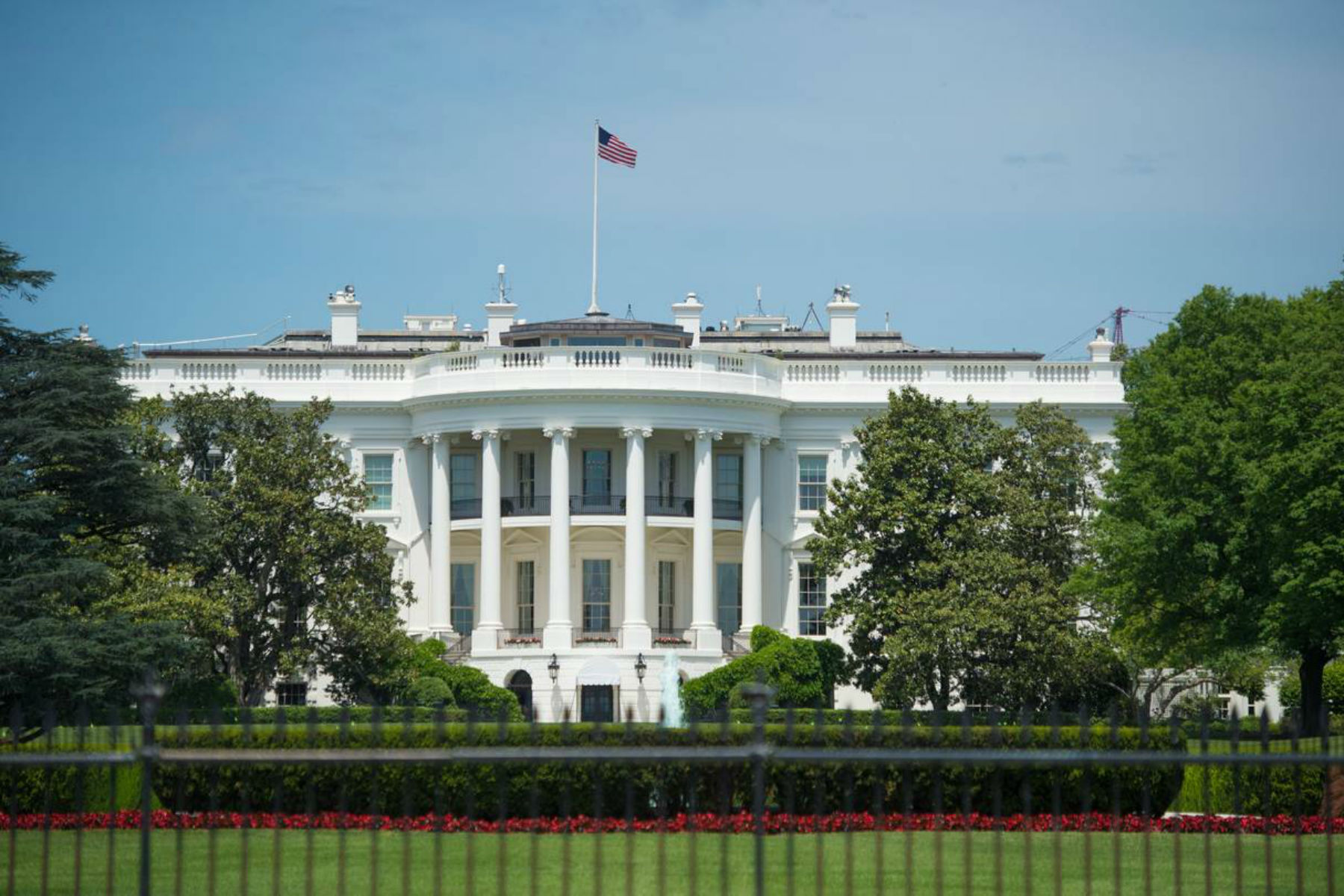
What Trump Can Learn from George W. Bush on Immigration Strategy
The White House should follow the Bush administration’s example and avoid antagonizing the Supreme Court.
With its order halting deportations to El Salvador at 1:00 a.m. on Saturday, the Supreme Court has intervened in the battle between the Trump administration and federal courts over immigration rights. As the justices examine whether the government can remove alleged Venezuelan terrorist gang members from American territory, they will revisit a series of cases stemming from the last major clash between a White House’s national security priorities and aliens’ alleged constitutional rights: the Bush administration’s decision to hold terrorists at Guantanamo Bay after 9/11.
As an official in the Justice Department’s Office of Legal Counsel at the time, I took part in the decisions that followed the core choice to treat the 9/11 attacks as acts of war rather than grandiose crimes. Like the Trump administration today, the Bush Justice Department adopted aggressive legal positions rooted in past wartime precedents—positions unfamiliar to most Americans, who had not seen a direct attack on U.S. soil since World War II. Ultimately, the Supreme Court upheld the government's authority to adopt a wartime legal posture in response to 9/11 and the broader war on terrorism. But it also ruled that the Due Process Clause required meaningful distinctions in how the government treated citizens and non-citizens, depending on where U.S. forces encountered them.
Comparing 2001 with 2025 reveals stark differences that suggest today’s Court may reject key aspects of the Trump immigration agenda. If it learns the lessons of the Bush experience, the Trump administration can avoid a needless confrontation with the most conservative Supreme Court in a century. The Court’s conservative majority—in particular, Justices Neil Gorsuch, Brett Kavanaugh, and Amy Coney Barrett—would support giving the president broad discretion to fight a real war, within the limits of the Constitution.
Politics

National Civitas Institute Poll: Americans are Anxious and Frustrated, Creating a Challenging Environment for Leaders
The poll reveals a deeply pessimistic American electorate, with a majority convinced the nation is on the wrong track.
.webp)
Liberal Democracy Reexamined: Leo Strauss on Alexis de Tocqueville
This article explores Leo Strauss’s thoughts on Alexis de Tocqueville in his 1954 “Natural Right” course transcript.
%20(1).avif)
Long Distance Migration as a Two-Step Sorting Process: The Resettlement of Californians in Texas
Here we press the question of whether the well-documented stream of migrants relocating from California to Texas has been sufficient to alter the political complexion of the destination state.
%20(3).avif)
Who's That Knocking? A Study of the Strategic Choices Facing Large-Scale Grassroots Canvassing Efforts
Although there is a consensus that personalized forms of campaign outreach are more likely to be effective at either mobilizing or even persuading voters, there remains uncertainty about how campaigns should implement get-out-the-vote (GOTV) programs, especially at a truly expansive scale.

California’s Green Policies Destroy Blue-Collar Jobs
The problem here lies not with racism, or lack of reparations, as Newsom and “progressives” insist, but with their own policies, which devastate minority communities.

There's a Perception Gap With the U.S. Economy
As we approach another election cycle, it’s worth asking: what’s real, what’s political theater, and what does it all mean if Democrats regain control of the House?
.jpg)
Confusion about Commandeering
State governments are not instrumentalities or vassals of the federal government but rather sovereign entities with their own legal authority.

A Climate Science Manual for Judges Discredits Itself
All is not well with the Reference Manual for Scientific Evidence. This is a loss for the public trust of science.



.avif)









